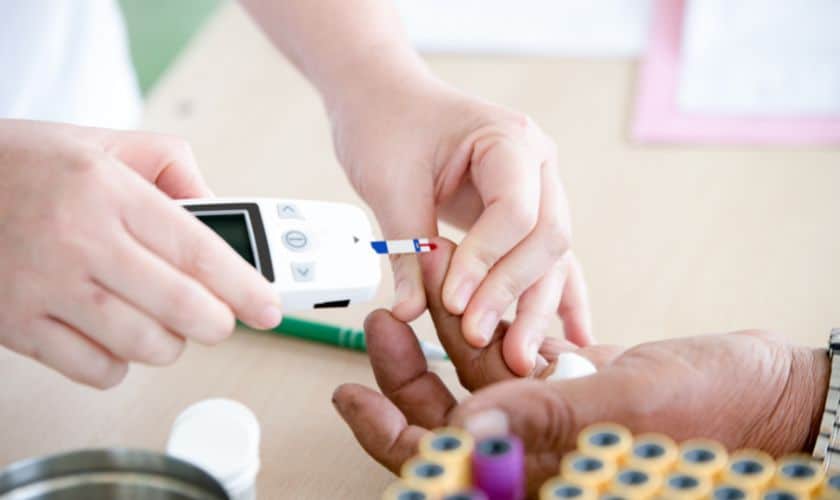Introduction to Diabetic Eye Health
Diabetes is a chronic condition that can have severe implications for various parts of the body, including the eyes. Diabetic retinopathy is a result of elevated blood sugar levels leading to harm to the blood vessels in the retina, which is the light-sensitive tissue located at the rear of the eye. Over time, this harm can lead to reduced vision and, in extreme situations, complete vision loss. Understanding how to manage, prevent, and mitigate these risks is crucial for those with diabetes, as maintaining eye health is integral to overall health.
The Importance of Regular Eye Exams
Regular eye exams are the first line of defense in identifying and managing diabetic eye diseases. One notable condition that can arise from diabetes is Bronx Diabetic Retinopathy, a leading cause of blindness among adults. These exams enable early detection of conditions like diabetic retinopathy before progressing to more severe stages. Routine check-ups can help prevent a lot of diabetes-related vision problems by catching them early, says the Centers for Disease Control and Prevention. Eye examinations usually consist of a dilated eye examination, during which special eye drops are used to enlarge the pupil, enabling the doctor to conduct a more thorough assessment of the retina and optic nerve. This process can identify early signs of damage that may not yet affect vision, making timely treatment possible.
Diet and Nutrition
Maintaining a balanced diet is not just essential for overall health but also crucial for eye health. Vitamins C and E, zinc, and omega-3 fatty acids are especially advantageous nutrients. A study highlighted by Healthline points to leafy greens, nuts, and fish as excellent food choices to promote good vision. Spinach, kale, and collard greens contain antioxidants such as lutein and zeaxanthin that shield the eyes from damaging light and oxidation. Omega-3 fatty acids found in fish like salmon and mackerel can promote retinal health, while vitamin E from nuts and seeds protects eye cells from free radicals. Adding these foods to your eating habits can support good eye health and lower the likelihood of diabetic eye conditions.
Blood Sugar Management
Managing diabetes hinges on regulating blood sugar levels. Consistent elevation of blood glucose can harm the blood vessels in the retina, leading to diabetic retinopathy. Tools like continuous glucose monitors can help maintain maintain optimal blood sugar levels. Adequate blood sugar management involves a combination of medication, diet, exercise, and frequent monitoring. Aiming for stable blood sugar levels is essential, as fluctuations can cause stress on blood vessels, increasing the risk of complications. Furthermore, collaborating closely with a healthcare professional to customize a diabetes management strategy according to your lifestyle can greatly enhance your ability to regulate healthy blood sugar levels and safeguard your eye health.
Exercise and Physical Activity
Regular exercise helps manage blood glucose levels and enhances eye wellness. Exercise improves insulin sensitivity, which helps your cells use available sugar from your bloodstream more effectively. Including any type of physical activity like walking, running, or doing yoga regularly in your daily schedule can lower the chances of experiencing eye problems related to diabetes. Exercise also helps improve the overall health of the heart, which is important for ensuring the retina receives proper blood supply. Aiming for at least 30 minutes of moderate exercise most days a week can significantly enhance diabetes management and eye health.
Avoiding Smoking and Excessive Alcohol
Smoking and heavy alcohol consumption can worsen the effects of diabetes. Smoking increases blood pressure and blood sugar levels, which can accelerate the damage to the blood vessels in the eyes. Being exposed to the dangerous chemicals in cigarette smoke can also raise the chances of developing diabetic retinopathy. Likewise, consuming too much alcohol can result in impaired blood sugar regulation and increase the likelihood of developing diabetic eye conditions. Avoiding these habits can greatly enhance your overall health and decrease the chances of developing diabetic eye disease. If you smoke or consume alcohol, seeking support to quit can be a highly beneficial step towards protecting your vision.
Wearing Protective Eyewear
Simple measures like sunglasses blocking UV rays can protect your eyes from harmful radiation, especially if you have diabetes. Being exposed to UV rays may raise the likelihood of developing cataracts and other eye issues. Always opt for eyewear that offers UV protection for the best results. Moreover, if you engage in sports or activities with potential for eye injuries, wearing protective equipment like sports goggles can shield your eyes from harm. Ensuring that your eyewear is high quality and suitable for your needs is a simple yet effective way to maintain eye health.
Joining Support Groups
Sometimes, managing diabetes can be stressful, and having a support system can make it easier. Participating in a diabetes support group offers valuable perspectives and motivation from individuals facing similar situations. Support groups provide a space to exchange advice, receive tips, and obtain emotional assistance, which can be crucial for dealing with the day-to-day struggles of diabetes. These groups may also provide access to educational resources, guest speakers, and workshops that can enhance your understanding of the condition. Being part of a community that understands your struggles can significantly improve your mental and emotional well-being, making staying motivated and proactive about your health easier.
Conclusion
Maintaining sound eye health while managing diabetes requires a multifaceted approach, including regular check-ups, a balanced diet, controlling blood sugar levels, and a healthy lifestyle. By being proactive now, you can safeguard your vision and experience a higher quality of life. The importance of managing diabetic eye health cannot be overstated, as early intervention and consistent care can prevent severe complications and preserve vision. Integrating these practices into your daily routine allows you to take meaningful steps toward securing your eye health and overall well-being.
